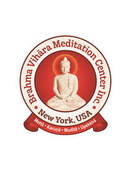Dāna
The Buddha used the Pali word “Dāna” to describe generosity. Activating generosity within us is the first instruction the Buddha gave to lay people. It was his first step teaching us to open our hearts to help make us successful in life and in spiritual development.
The Buddha taught three kinds of dana: Generosity of Mind, Generosity of Speech, and Generosity through Bodily actions.
Generosity of Mind means to cultivate wholesome thoughts to support yourself and those around you.
Generosity of Speech means to use kind and wise words with good intention to help yourself and others to be successful in life.
Generosity of Bodily Actions means the direct act of offering dana as described above or doing those deeds that help your family, teachers, and others in your life whenever there is need.
In Asia, lay community members support programs and activities at monasteries and meditation centers by providing goods and services to sustain their highly valued role in society. These traditional communities make it possible to build housing; provide transportation, clothing, food, and medicine to monastics so that they can dedicate themselves full time in teaching and preserving the riches of wisdom and compassion found in the Buddha’s Teachings.
For an in depth article on all the aspects of Dāna you might enjoy this publication.
The Buddha used the Pali word “Dāna” to describe generosity. Activating generosity within us is the first instruction the Buddha gave to lay people. It was his first step teaching us to open our hearts to help make us successful in life and in spiritual development.
The Buddha taught three kinds of dana: Generosity of Mind, Generosity of Speech, and Generosity through Bodily actions.
Generosity of Mind means to cultivate wholesome thoughts to support yourself and those around you.
Generosity of Speech means to use kind and wise words with good intention to help yourself and others to be successful in life.
Generosity of Bodily Actions means the direct act of offering dana as described above or doing those deeds that help your family, teachers, and others in your life whenever there is need.
In Asia, lay community members support programs and activities at monasteries and meditation centers by providing goods and services to sustain their highly valued role in society. These traditional communities make it possible to build housing; provide transportation, clothing, food, and medicine to monastics so that they can dedicate themselves full time in teaching and preserving the riches of wisdom and compassion found in the Buddha’s Teachings.
For an in depth article on all the aspects of Dāna you might enjoy this publication.







